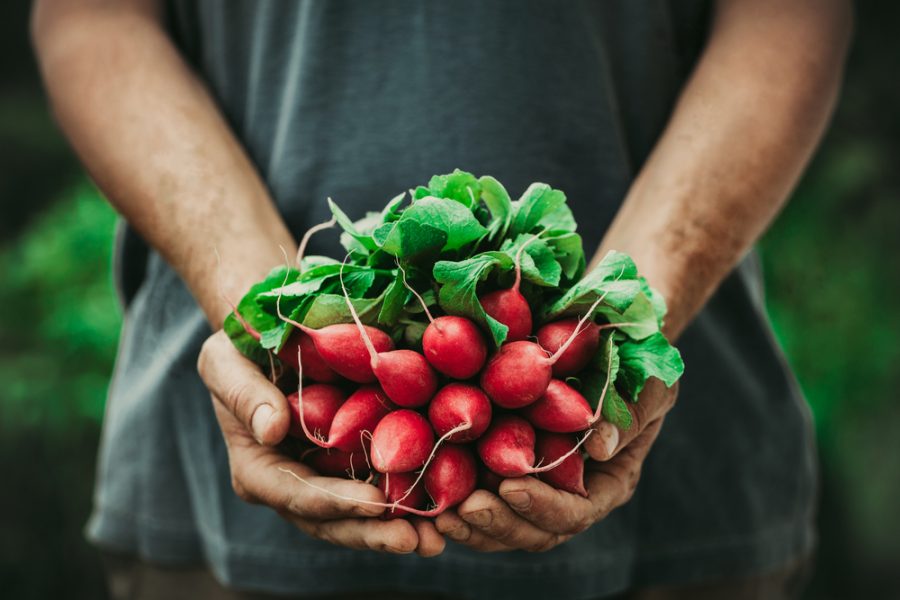
No More “Torn Trousers”: Public-Private Cooperation, an Approachable Way for Financial Inclusion in the Pacific
4 October 2021
Chairholder’s Remarks at IDDRI’s 20th Anniversary Conference on Planetary Governance
13 October 2021A challenge program for young scholars and practitioners
Scaling up Food Systems Solutions for Addressing Climate Change Mitigation and Adaptation: Ensuring social equity, biodiversity and carbon neutrality outcomes
Researchers and practitioners alike are firm in their declaration of the critical role of the private sector in scaling up food system solutions to address the challenges of climate change mitigation and adaptation.[1] Not only must private stakeholders across the world, in developing and industrialized countries, cater to the exponential increase in demand, but do so in a manner that yields socially equitable outcomes and at the same time without negatively impacting the soil, biodiversity, water and habitat systems. They would need to involve successful partnerships both within the private domain as well as with government agencies and civil society stakeholders. The challenge is even greater since activities of the food systems across diverse supply chains in the coming years need to be managed within a finite and steeply declining carbon budget to adhere to the demands of the Paris Climate Agreement. The challenges are hence considerable, going well beyond individual company actions, technological promises or calls for enhanced private sector investments.
The European Chair for Sustainable Development and Climate Transition at Sciences Po is organizing a challenge for young people to write research paper on the practical challenges that the private sector must overcome in order to successfully scale up of food system actions in the face of climate change. The focus should be not only on the ‘what’ of action, but also describe the manner or how the action should be implemented. The research papers should be in English and have a maximum length of 5000 words, not including references and foot/end notes.[2] The challenge is open to all nationalities, and is meant to encourage young scholars and practitioners. The authors should not be older than 35 years as of April 30th, 2022.
Up to six submissions, authored by researchers/practitioners/activists from around the world, will be selected. They would successfully address critical issues faced by the private sector and provide practical solutions to scale up the food system in a sustainable manner while being responsive to the challenges of climate change. The winners will receive a citation along with a total award per paper submission of 1000 euros.[3] The successful submissions will be promoted in public events of the Chair as well as presented on the Chair’s website.[4]
On participating in the challenge:
Those interested should send in an outline of proposed paper by 23:55 hours (CET), November 14th, 2021. The outline should clearly state the central challenges that would be explored in the paper. The outline should have a maximum length of 500 words. Email the outline to sdctchair.info@sciencespo.fr
Following an assessment of the submitted outline papers, selected authors will receive a reply, no later than November 30th, 2021, informing them of being the winners of the challenge. The winners shall have to submit their final research paper no later than April 30th, 2022 by 23:55 hours (CET). The award amount will be conferred only after submission of the final paper and completion of applicable paperwork.
[1] “Food systems comprise all the actors, activities, and forces influencing the production, aggregation, processing, distribution, consumption, and disposal of food products.” The actors allocate resources to a range of activities that are undertaken within biophysical, socioeconomic, political, and cultural constraints. Food systems fundamentally connect producers and consumers with outcomes affecting nutrition and health, livelihoods and economies, and the environment. See, http://www.fao.org/cfs/cfs-hlpe
[2] Multi-media submissions are a welcome alternative to papers. Please contact for details of submission.
[3] The award will be granted in euros. Each winner shall ensure the fulfillment of all applicable legal requirements to receive the award, and is solely responsible for fulfillment of the applicable requirements.
[4] Winners commit to fulfilling all the necessary intellectual property requirements as requested by Sciences Po.


